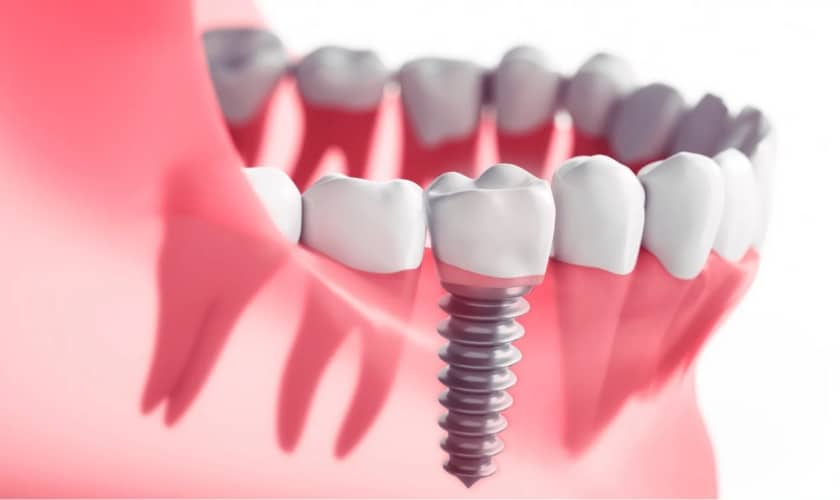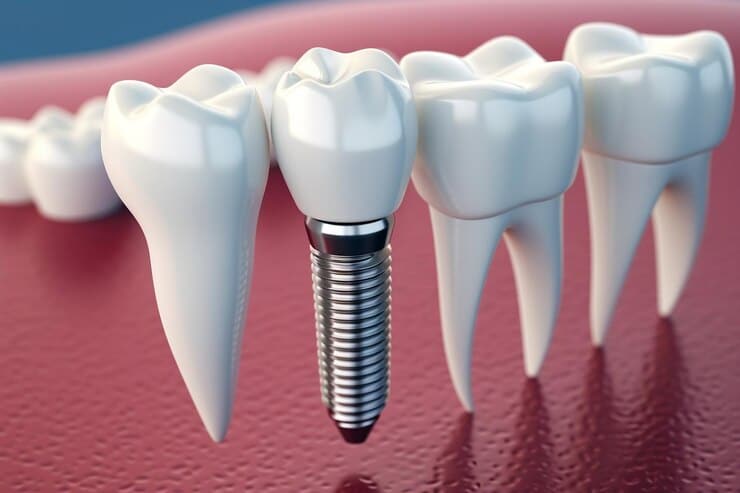
Are you missing one or more of your teeth? Do you feel that it disrupts the look and feel of your smile? If so, dental implants may be the perfect solution for you. Millions of people worldwide opt for dental implants due to their durability, longevity, and natural-looking aesthetic appeal. In this blog post, we’ll discuss why do so many people prefer dental implants over other tooth replacement options.
Dental implants are some of the most popular tooth replacement methods today due to their natural aesthetic appeal and superior longevity compared to traditional dentures or bridges. They can last a lifetime with proper care and maintenance while also mimicking the look and feel of natural teeth in terms of shape, color, size, and texture.
Dental implants are artificial tooth roots that are surgically placed into the jawbone and topped with a dental prosthetic such as a bridge or crown. The implant is made of titanium, which integrates with bone over time to form a strong and secure anchor for your new teeth.
In this blog post, we’ll discuss why do so many people prefer dental implants over other tooth replacement options. We will look at the advantages of dental implants, the types available, and how they can improve your overall oral health.
Advantages of Dental Implants
One of the main reasons people choose dental implants is their long-term durability and longevity when compared to traditional bridges or dentures. Dental implants can last for decades with proper care and maintenance, making them a superior option for those looking for a permanent solution to missing teeth.
Dental implants also provide superior aesthetics when compared to bridges or dentures. Because they are secured directly into the jawbone, they look, feel, and function like natural teeth. They can be matched in color and size to blend in seamlessly with existing teeth.
In addition to aesthetics, dental implants can improve oral health overall by preventing bone loss associated with missing teeth. The implant acts as an artificial root that helps stimulate the jawbone and prevents it from deteriorating over time due to lack of use. This helps preserve facial structure in the long term while also providing more stability for your bite than a bridge or denture would.
Types of Dental Implants
There are two main types of dental implants available: endosteal and subperiosteal. Endosteal implants involve surgically placing a titanium screw or cylinder into the jawbone, while subperiosteal implants use a metal frame that is attached to the jawbone just below the gum line.
Endosteal implants are the most common type used today and are typically used for single-tooth replacements. They require enough healthy bone tissue for successful placement and may require additional procedures such as bone grafts if necessary. Subperiosteal implants, on the other hand, can be used in cases where there is not enough healthy bone tissue available. These implants are usually recommended for those who are unable to wear dentures due to bone or gum recession.
Benefits of Dental Implants
Dental implants provide a wide range of benefits from improved aesthetics and function, to overall health benefits such as preventing bone loss in the jawbone and preserving facial structure. Implant-supported tooth replacements also allow for more comfortable eating and speaking, since they are secured directly into the jawbone like natural teeth. Additionally, because dental implants do not require any special care beyond regular brushing and flossing, they are easy to maintain for years without any hassle.
If you’re missing one or more of your teeth and want a permanent solution that looks, feels, and functions like natural teeth, dental implants may be your best option. With superior longevity compared to bridges or dentures, as well as improved aesthetics and overall health benefits, dental implants provide a safe and effective way to replace missing teeth for life.
A: Dental implants can last for decades with proper care and maintenance.
A: Generally speaking, 18 years old is the minimum age required for placement of a dental implant due to the need for a fully developed jawbone structure. However, this may vary depending on the patient’s individual case.
A: The cost of dental implants can vary greatly depending on the individual case. Factors such as the number of teeth being replaced and whether additional procedures are needed will affect overall costs. However, many patients find that the long-term benefits of dental implants make them a worthwhile investment for restoring their smile and improving overall oral health.



